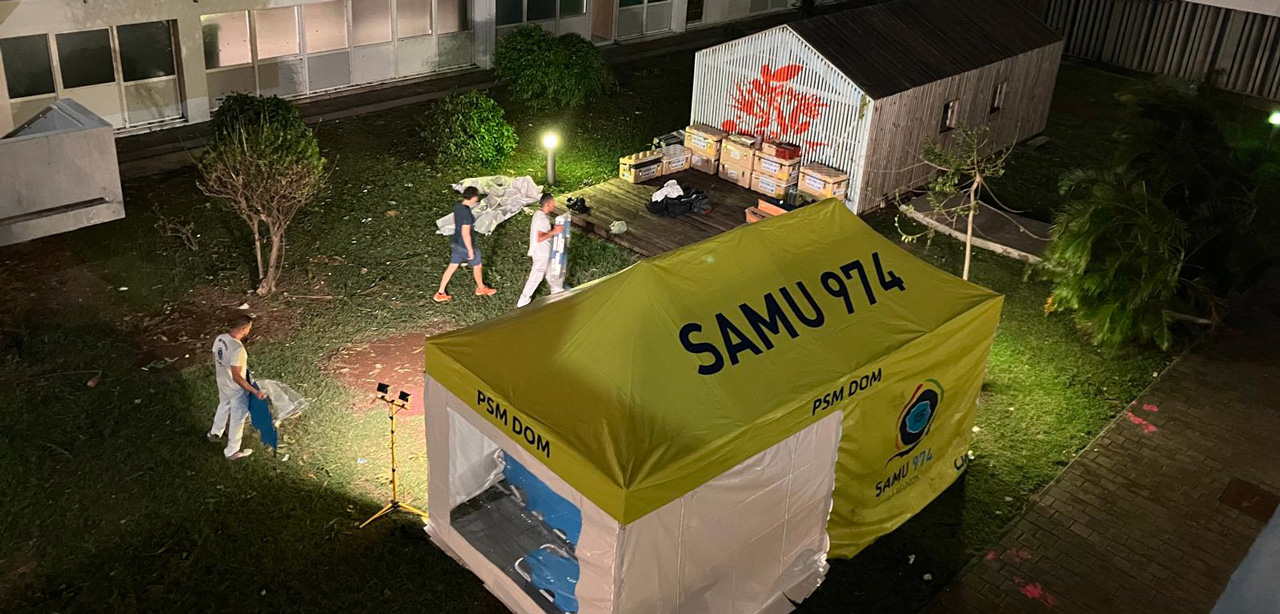BACKGROUND: Dengue is a major public health concern in Reunion Island, marked by recurrent epidemics, including successive outbreaks of dengue virus serotypes 1 and 2 (DENV1 and DENV2) with over 70,000 cases confirmed since 2017. METHODOLOGY/PRINCIPAL FINDINGS: In this study, we used Oxford Nanopore NGS technology for sequencing virologically-confirmed samples and clinical isolates collected between 2012 and 2022 to investigate the molecular epidemiology and evolution of DENV in Reunion Island. Here, we generated and analyzed a total of 499 DENV1, 360 DENV2, and 18 DENV3 sequences. By phylogenetic analysis, we show that different genotypes and variants of DENV have circulated in the past decade that likely originated from Seychelles, Mayotte and Southeast Asia and highly affected areas in Asia and Africa. CONCLUSIONS/SIGNIFICANCE: DENV sequences from Reunion Island exhibit a high genetic diversity which suggests regular introductions of new viral lineages from various Indian Ocean islands. The insights from our phylogenetic analysis may inform local health authorities about the endemicity of DENV variants circulating in Reunion Island and may improve dengue management and surveillance. This work emphasizes the importance of strong local coordination and collaboration to inform public health stakeholders in Reunion Island, neighboring areas, and mainland France.
Auteur : Frumence Etienne, Wilkinson David A, Klitting Raphaelle, Vincent Muriel, Mnemosyme Nicolas, Grard Gilda, Traversier Nicolas, Li-Pat-Yuen Ghislaine, Heaugwane Diana, Souply Laurent, Giry Claude, Paty Marie-Claire, Collet Louis, Gérardin Patrick, Thouillot Fabian, De Lamballerie Xavier, Jaffar-Bandjee Marie-Christine
PLoS neglected tropical diseases, 2024, vol. 18, n°. 5, p. e0012184


